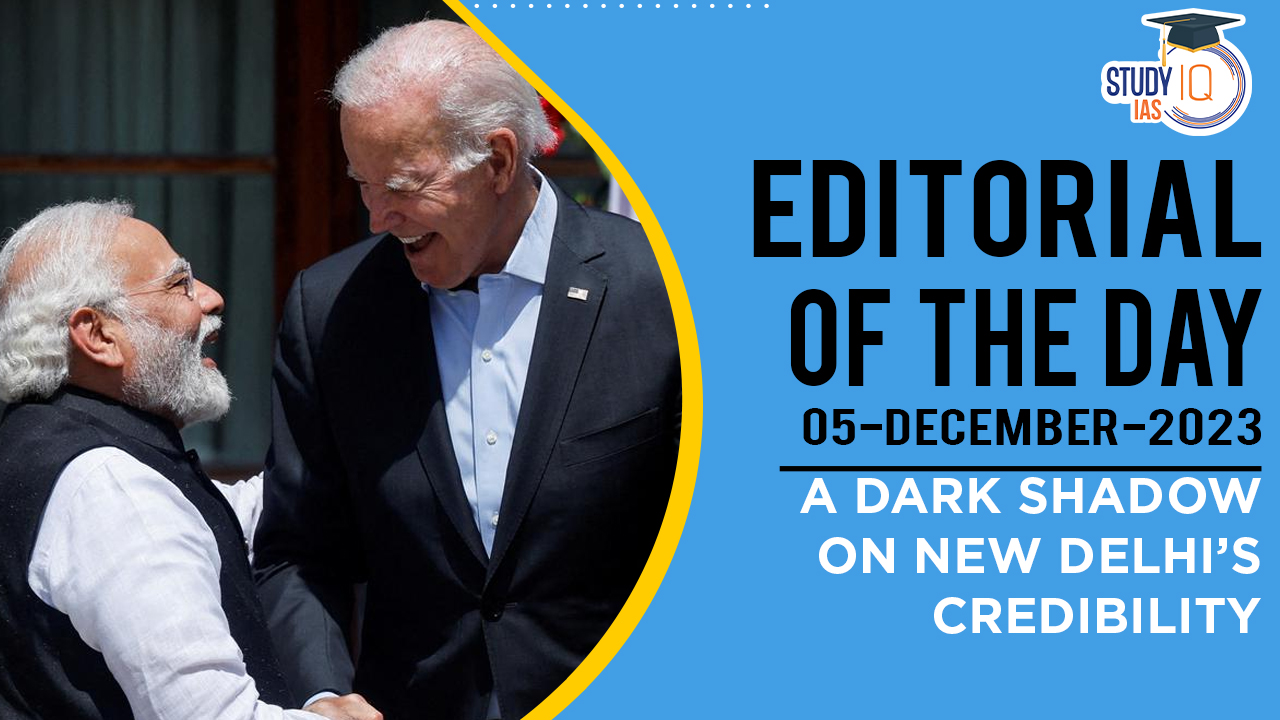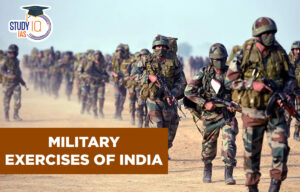Table of Contents
A Dark Shadow On New Delhi’s Credibility
Context: A US indictment alleges an Indian national targeted Khalistani separatists, raising questions about New Delhi’s covert operations and credibility.
We’re now on WhatsApp. Click to Join
Concerns Arising
- Trust Gap: Despite growing bilateral and strategic ties, trust between the U.S. and India lags, evident in intelligence and diplomatic interactions.
- International Relations Impact: Distrust in intelligence-sharing could strain India-U.S. relations and affect ties with Western allies, including the “Five Eyes” network (Australia, Canada, New Zealand, the U.K. and the U.S.).
- Perceived Double Standards:
- By India: India’s differing responses to allegations from Canada and the U.S., including setting up an inquiry for the latter, suggest inconsistent approaches.
- By Western Countries: Western nations, known for their covert operations, often criticise similar actions by others.
- Examples: The CIA, MI6 and Mossad have often eliminated their threat on foreign shores, while against Russia (Skripal attacks), Saudi Arabia (Khashoggi killing), and publicly shaming India (alleged claims on Mr. Pannun and Nijjar).
- Issues with Information Sharing: The U.S.’s scepticism towards Indian intelligence on Khalistani separatism and specific individuals reflects mutual distrust.
- Example: Information that India has shared on Mr. Pannun, Nijjar and the Khalistani separatist movement.
- Incomplete Disclosure History: The U.S. has previously cautioned India without full information sharing.
- Example: The U.S. warned India about the impending 26/11 terror threat without disclosure of source and forcing the Indian government to use video-camera for the trial is showing lack of trust in cooperation.
Controversial Operations
- In 2018, the Indian Coast Guard’s involvement in the forced repatriation of UAE Princess Latifah from international waters, later criticised by a UK court.
- Allegations in 2021 about British nationals, reportedly working for Indian agencies, attempting to abduct Mehul Choksi, a fugitive businessman, from Antigua to Dominica.
- The sentencing of eight ex-Indian naval officers in Qatar for espionage, is currently under appeal.
- The ongoing legal battle at the International Court of Justice (ICJ) over the extrajudicial military court trial of former Indian naval officer Kulbhushan Jadhav in Pakistan, was initiated in 2016.
Future Steps
- Tackling Regional Impact: India is required to manage the repercussions of this case in neighbouring countries.
- Addressing South Asian Concerns: It’s vital for India to respond to apprehensions regarding the activities of its agencies in South Asia.
- Emphasis on Transparency: Conducting an open investigation would aid in resolving issues related to credibility.
- Official Stance: The Ministry of External Affairs has clarified that covert, extrajudicial assassinations are not endorsed by the government, and has committed to investigating the allegations


 Utkal Divas 2025: Odisha Foundation Day ...
Utkal Divas 2025: Odisha Foundation Day ...
 List of Military Exercises of India 2024...
List of Military Exercises of India 2024...
 GPS Spoofing and Its Impact in India: A ...
GPS Spoofing and Its Impact in India: A ...





















